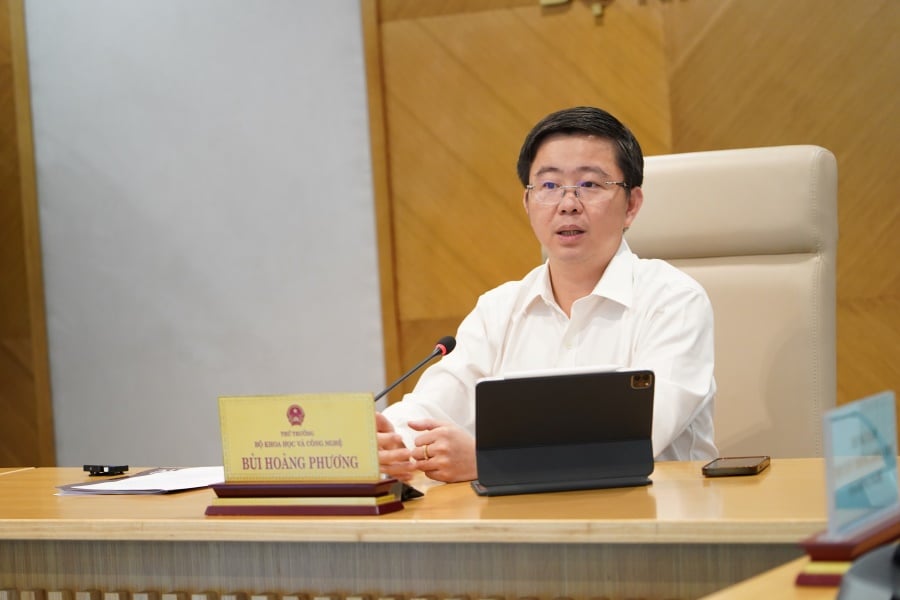
Deputy Minister of Science and Technology Bui Hoang Phuong speaks at the press conference.
Speaking at the press conference, Deputy Minister Bui Hoang Phuong stated that June 2025 is an important milestone in the field of science and technology. Just four months after the merger of the two ministries (Ministry of Science and Technology and Ministry of Information and Communications ), the Ministry of Science and Technology has submitted to the National Assembly five fundamental laws, marking an important turning point in the field of science, technology, innovation and digital transformation (S&T, I&D) in Vietnam.
The five laws include: Law on Science , Technology and Innovation, Law on Digital Technology Industry, Law on Product and Goods Quality (amended), Law on Vietnam Technical Standards and Regulations (amended), Law on Atomic Energy (amended). Although these laws were developed 1-2 years ago, their contents have been almost completely changed with the adoption of new policies and ideas of Resolution 57-NQ/TW issued on December 27, 2024. The revision and supplementation of the contents of the laws in the spirit of Resolution 57-NQ/TW have been directed and implemented resolutely by Minister Nguyen Manh Hung. With major adjustments in principles and fundamental changes, the laws will contribute to removing bottlenecks in the field of science and technology.
The Deputy Minister said that from now until October 2025, the Ministry will continue to develop four important laws, including the Law on Digital Transformation, the Law on High Technology, the Law on Intellectual Property and the Law on Technology Transfer to submit to competent authorities for consideration and report to the Government for comments from the National Assembly at the 10th Session of the 15th National Assembly. This is an important legal corridor for the development of science and technology, innovation and digital transformation.
The Deputy Minister emphasized that, in addition to the work of developing legal documents and creating a legal corridor, the Ministry of Science and Technology is well aware of the important role of information and communication work in propagating the Party's guidelines and policies and the State's policies.
This is demonstrated by the fact that for the first time there is a communication project in the field of science and technology at the national level. That is Decision No. 1169/QD-TTg of the Prime Minister: Approving the Program "Promoting communication to implement Resolution No. 57-NQ/TW dated December 22, 2024 of the Politburo on breakthroughs in the development of science and technology, innovation and national digital transformation by 2030". The issuance of this Decision affirms the important role of information and communication work in spreading the major policies of the Party and State on science and technology, innovation and digital transformation.
New points and highlights of 5 important laws in the field of science and technology, innovation and digital transformation just passed by the National Assembly
At the press conference, representatives of the leaders of the units under the Ministry in charge of drafting and building the 5 laws presented and introduced the new points and highlights of the 5 laws just passed by the National Assembly.
Law on Science, Technology and Innovation:
The Law not only fully concretizes the spirit and guiding viewpoints of Resolution 57-NQ/TW but is also a manifesto expressing the vision and aspiration to turn Vietnam into a powerful nation through the development of science, technology and innovation. The Law affirms the fundamental role of science, technology and innovation, considering it a key factor to enhance national institutional capacity, develop the socio-economy, ensure national security and defense, and improve the quality of people's lives.
For the first time, a law puts innovation on par with science and technology, demonstrating a fundamental change in development thinking: If science and technology are the professional activities of scientists, focusing on research and development of new knowledge and technology, then innovation is a process of the entire population. State management shifts from controlling input processes to managing results, output efficiency, and accepting risks. The State will invest in strategic technologies, creating mechanisms for businesses and research institutes to proactively master these technologies.
The law also focuses on developing innovative enterprises, encouraging investment in R&D from both corporate capital and the state budget. In particular, digital transformation is comprehensively applied in science and technology activities and science and technology management, thereby improving operational efficiency, transparency and long-term monitoring capabilities.
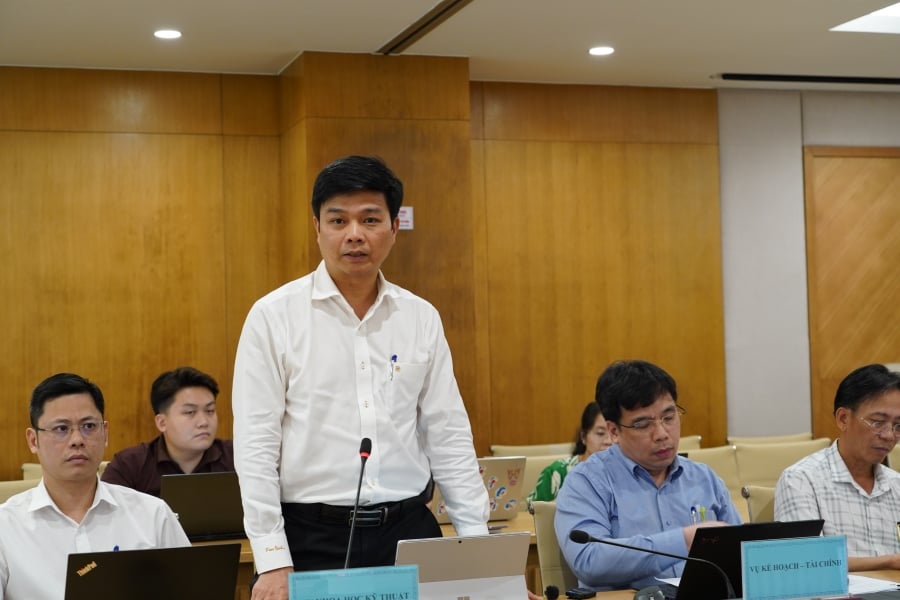
Mr. Nguyen Phu Hung - Director of the Department of Science, Technology and Innovation introduced new points of the Law on Science, Technology and Innovation.
Digital Technology Industry Law :
Approved by the National Assembly on June 14, 2025, it creates a strong legal corridor, promotes innovation, enhances competitiveness and promotes digital transformation, develops the digital economy quickly, strongly and sustainably.
The law comprehensively regulates the fields of digital technology, semiconductor industry, artificial intelligence (AI) and digital assets, creating a pioneering, synchronous and transparent legal corridor. The law also provides outstanding preferential policies for key projects in the fields of digital technology, semiconductors, AI and data centers: 5% tax rate for 37 years, tax exemption for 6 years, 50% tax reduction for the next 13 years, and land rent exemption for up to 22 years and 75% reduction for the remaining years. In particular, the law standardizes the "Make in Vietnam" program, promoting domestic design and production and encouraging technology transfer from FDI enterprises. With the goal of forming 150,000 digital technology enterprises by 2035, the Digital Technology Industry Law lays the foundation for building a strong technology ecosystem, promoting the development of high-quality human resources, developing AI as a new production method, shaping the legal status of digital assets, and being a strong institutional lever to promote digital transformation and develop the digital economy.
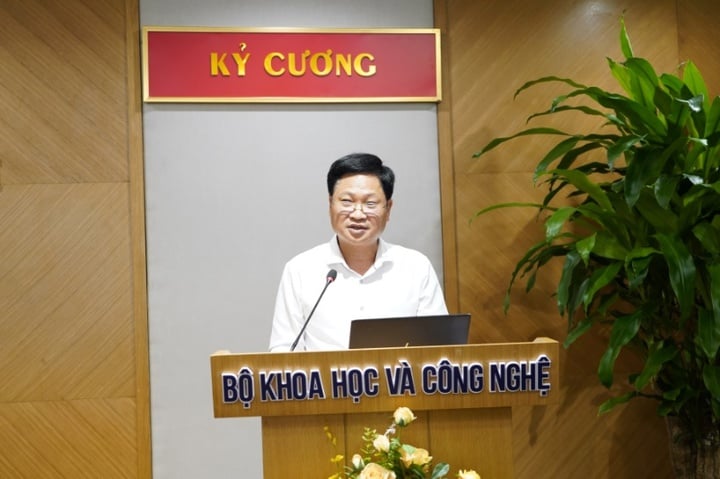
Mr. Nguyen Khac Lich - Director of the Department of Information Technology Industry introduced the Law on Digital Technology Industry.
Law on Technical Standards and Regulations (amended) and Law on Product and Goods Quality (amended):
These are two important laws, marking a comprehensive innovation in thinking and management methods in the fields of standards, measurement and quality.
For the Law on Standards and Technical Regulations, for the first time, the National Standards Strategy is legalized as a long-term orientation tool. For the first time, a national database on standards, measurement, and quality is established. Another very important content of the Law is the regulation of the principle of "one product - one standard" nationwide to end the overlapping and fragmented management. The mechanism for unilateral recognition of international conformity assessment results creates favorable conditions for enterprises in the high-tech sector when the country does not have enough testing capacity - such as 5G, IoT, semiconductor chips.
Meanwhile, the Law on Product and Goods Quality has three new points, specifically: Fundamentally shifting from administrative management to risk management; Shifting from pre-inspection to post-inspection based on data and technology; Shifting from incentive mechanisms to binding responsibilities, transparency and strict sanctions. The National Quality Infrastructure (NQI) is fully defined with five core elements: standards, measurement, conformity assessment, recognition and market surveillance. The Law also increases the supervisory power of social organizations, strictly controls the quality of goods on digital platforms, contributes to protecting consumers and improving the competitiveness of businesses.
Mr. Ha Minh Hiep - Chairman of the National Committee for Standards, Metrology and Quality introduced the Law on Technical Standards and Regulations (amended) and the Law on Product and Goods Quality (amended)
Law on Atomic Energy (amended):
With 8 chapters and 73 articles, the Law has met the legal framework for state management in the field of atomic energy (NEE), in accordance with the guidelines and model law of the International Atomic Energy Agency (IAEA). A notable point is that nuclear power is identified as a national strategy, meeting the criteria of clean energy, contributing to the goal of reducing carbon emissions, ensuring national energy demand and security. The Law stipulates that activities to ensure safety and security in the development of NEE applications in general and nuclear safety in particular must be managed by a competent state agency, in compliance with international standards, IAEA guidelines, and the entire life cycle management, through all stages of a nuclear power plant, from project approval, site selection, construction, testing, operation to the closure stage. This is a comprehensive approach, based on international experience. The Law also designs a separate chapter on nuclear safety and security, while strongly developing nuclear energy applications for civilian purposes in various fields, moving towards mastering nuclear energy technology to serve socio-economic development, and implementing comprehensive digital transformation in the management of nuclear energy applications and nuclear energy.
Mr. Nguyen Tuan Khai - Director of the Department of Radiation and Nuclear Safety introduced the Law on Atomic Energy (amended).
Ms. Nguyen Thi Hai Hang - Director of the Center for Science and Technology Communication gave an overview of Decision No. 1169/QD-TTg of the Prime Minister: Approving the Program "Promoting communication to implement Resolution No. 57-NQ/TW dated December 22, 2024 of the Politburo on breakthroughs in science and technology development, national innovation and digital transformation by 2030".
Directly answer questions from reporters
At the regular press conference, the Ministry of Science and Technology provided information and answered many questions from journalists from press agencies, revolving around issues of current public concern.
Many key issues were raised by the press, such as: Plans to implement new laws recently passed by the National Assembly; application of artificial intelligence in key industries; universal digital literacy program for all people, especially the "popular digital literacy" initiative; orientations for job creation and skill improvement for workers in the digital age; flexible financial mechanisms to attract high-quality human resources and promote socialized investment in research and innovation.
Deputy Minister Bui Hoang Phuong directly directed representatives of the Ministry's functional units to answer the press about many "hot" issues, especially new points in the management of the sector. These include solutions to handle conflicts and overlaps when the Law on Science, Technology and Innovation comes into effect with current laws; the "sandbox" mechanism when implementing policies related to many ministries and sectors; the plan to attract 100 domestic and foreign experts to participate in key national programs on AI.
Notably, in response to the question about support for the Departments of Science and Technology from July 1 - the official implementation of the two-tier government model, the Deputy Minister said that the Ministry has been carefully preparing to accompany localities in this important transition period. "The upcoming workload of localities is very large, some of which have never been done before. The Ministry clearly defines its supporting role, will establish specialized working groups, organize many in-depth conferences and seminars to guide and remove difficulties for the Departments of Science and Technology".
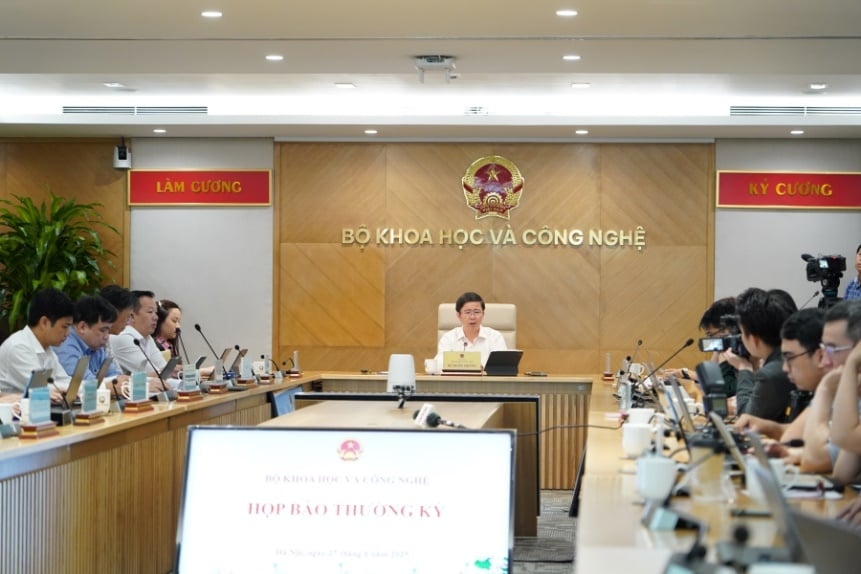
Overview of the event.
Concluding the press conference, the Deputy Minister of Science and Technology emphasized: The Ministry of Science and Technology will maintain regular monthly press conferences to fully and promptly convey the major policies and orientations of the Ministry and the industry to journalists and press agencies, thereby spreading them to people, businesses and society. The Deputy Minister hopes that press agencies will continue to accompany and closely coordinate with the functional units of the Ministry to effectively carry out the mission of communicating science and technology, innovation and digital transformation in the new development period./.
Source: https://mst.gov.vn/bo-khcn-hop-bao-thuong-ky-lam-ro-nhieu-van-de-nong-ve-luat-moi-tri-tue-nhan-tao-va-ho-tro-dia-phuong-sau-khi-trien-khai-chinh-quyen-hai-cap-197250627232113767.htm


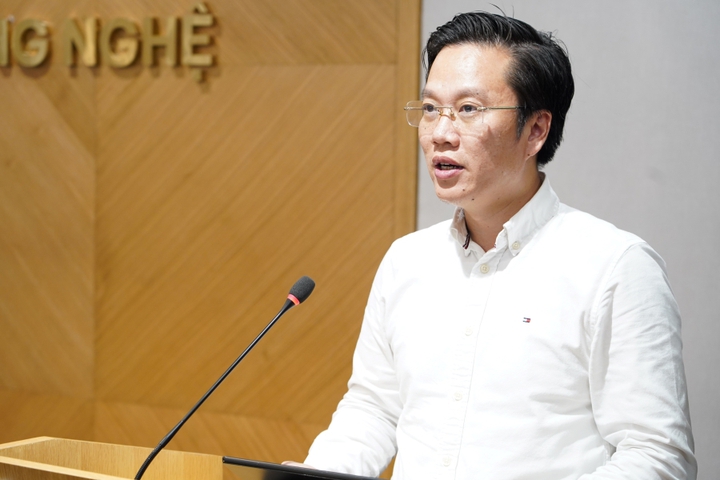
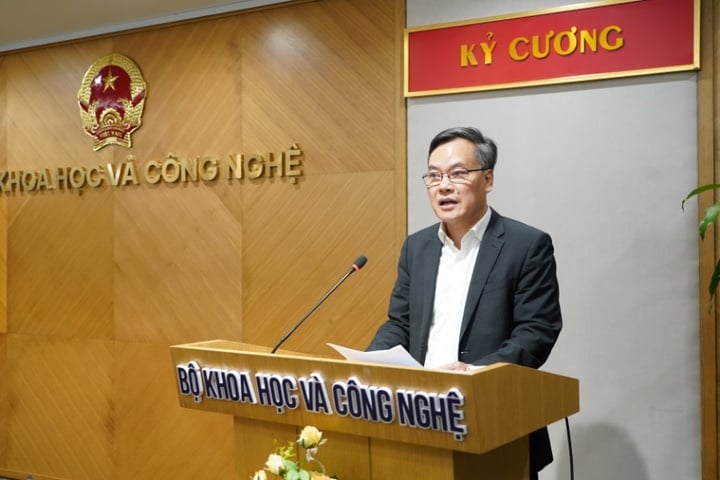
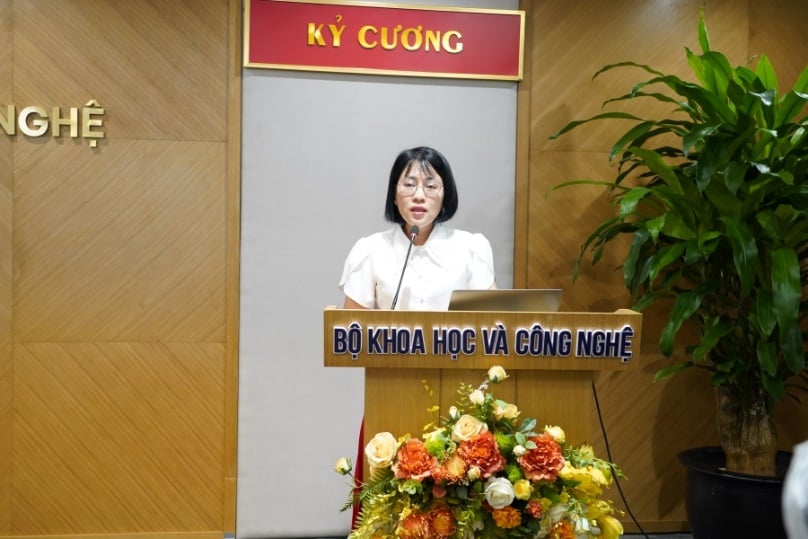


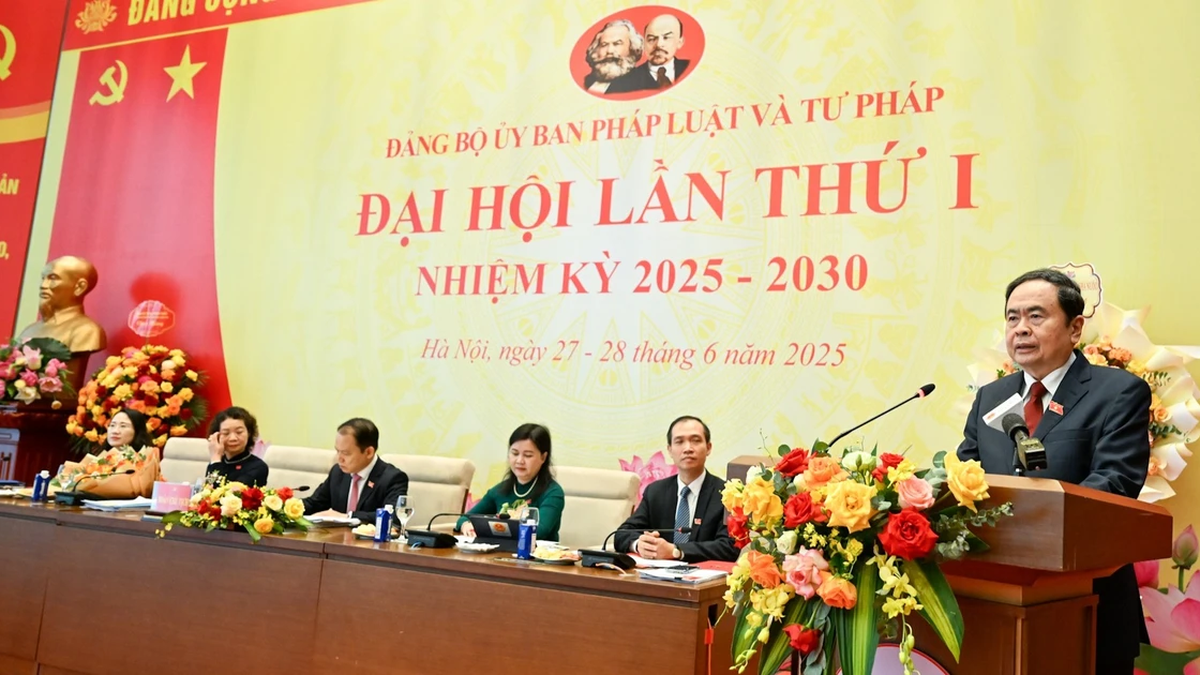

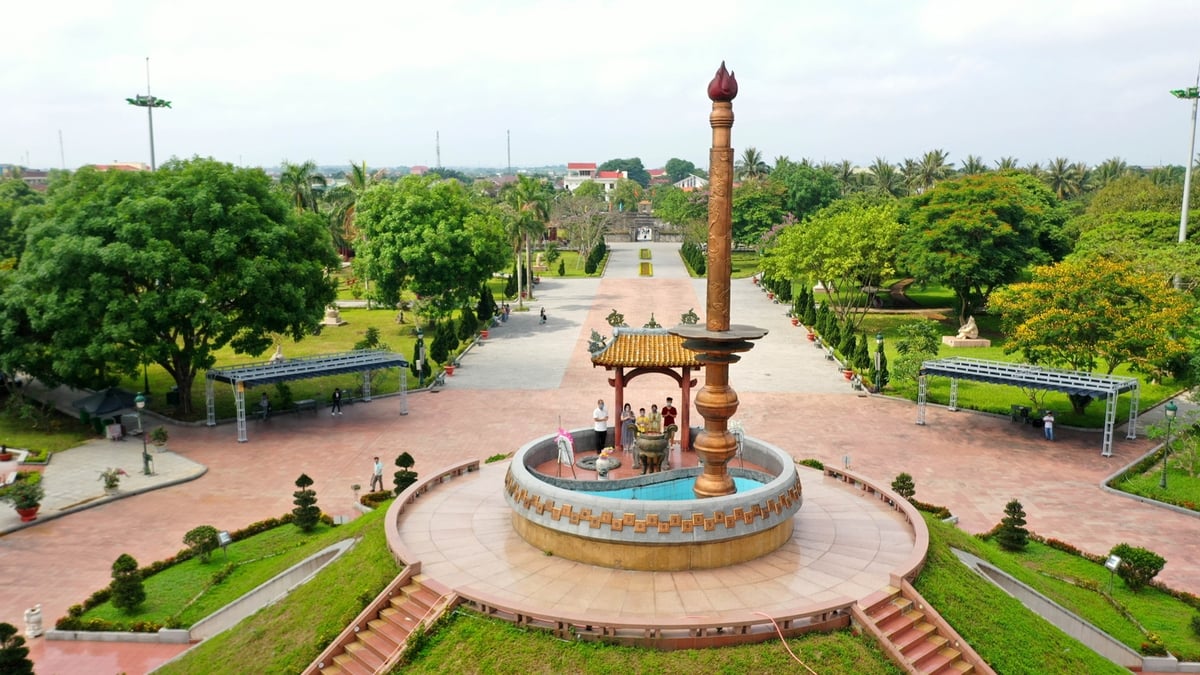

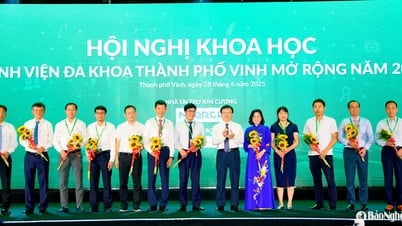



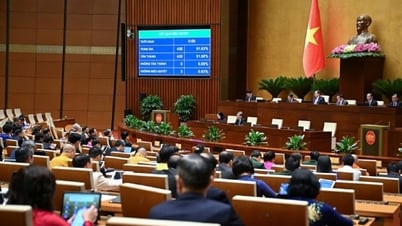









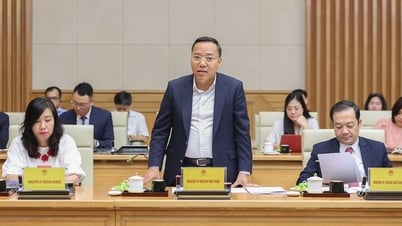


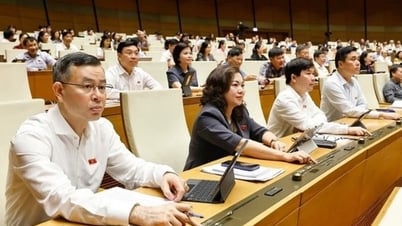
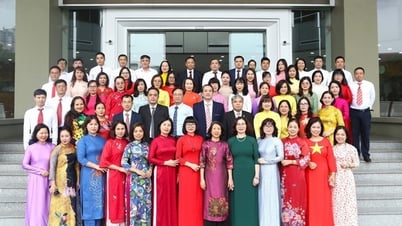
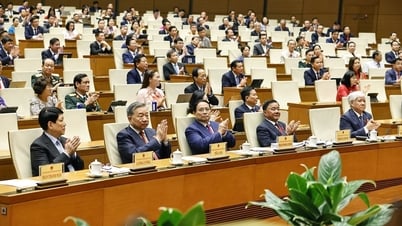





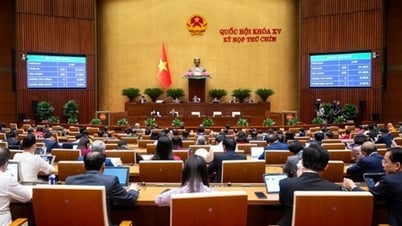
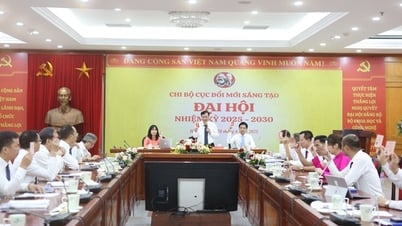
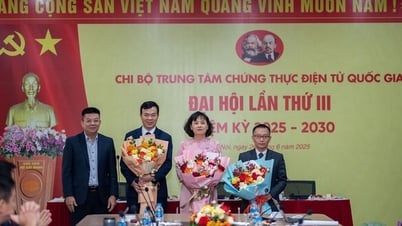

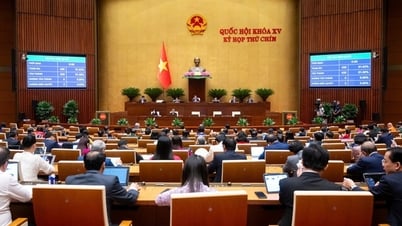
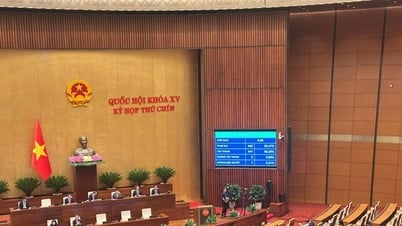

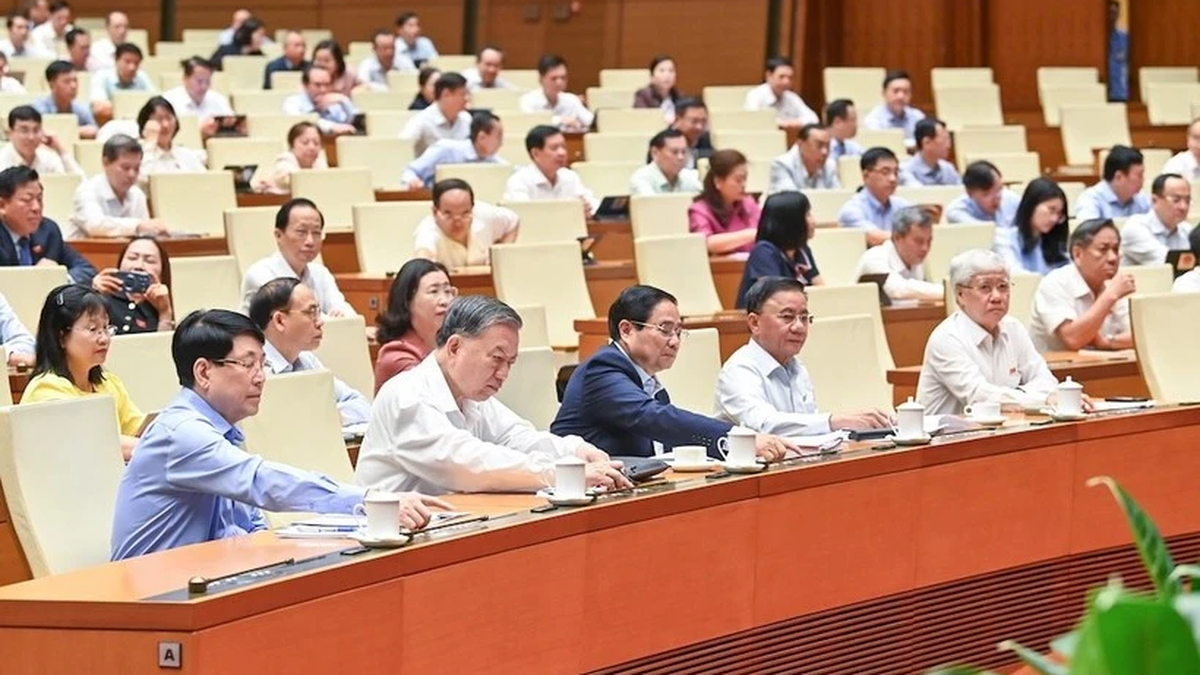
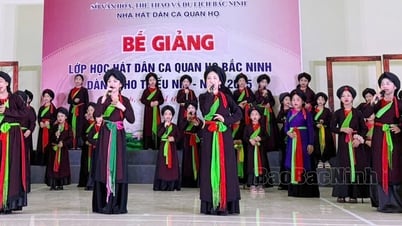

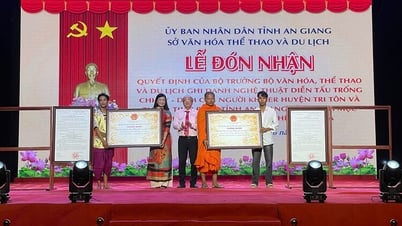



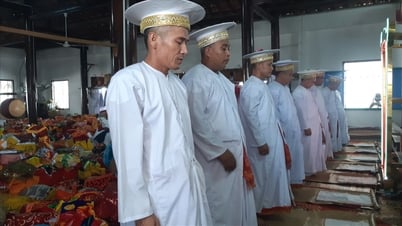

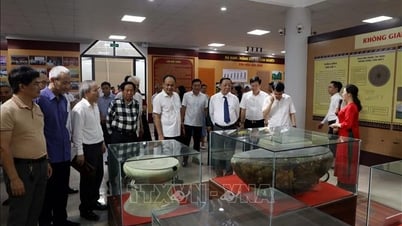




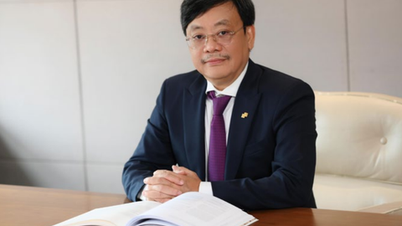









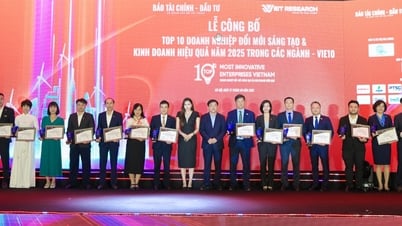

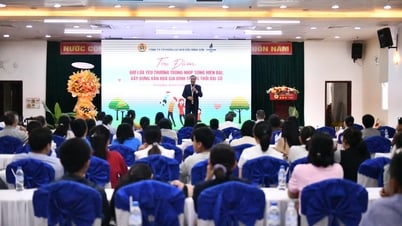





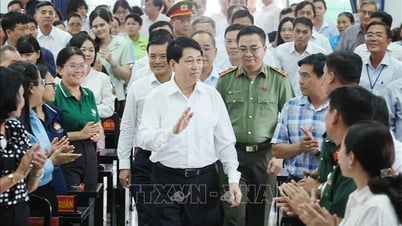
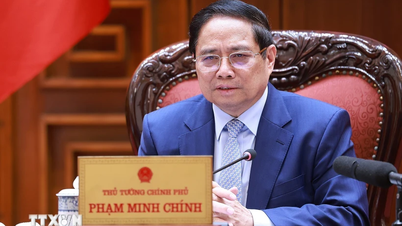


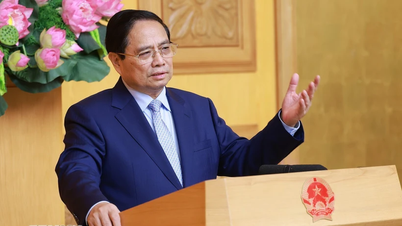
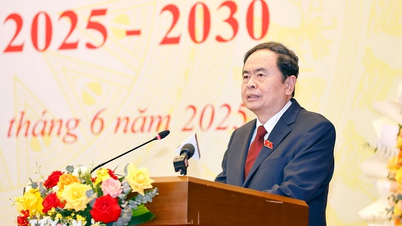

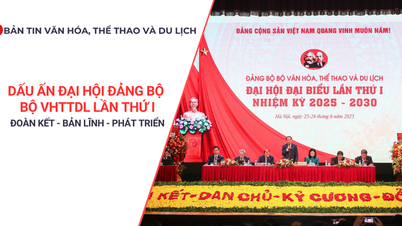





















Comment (0)